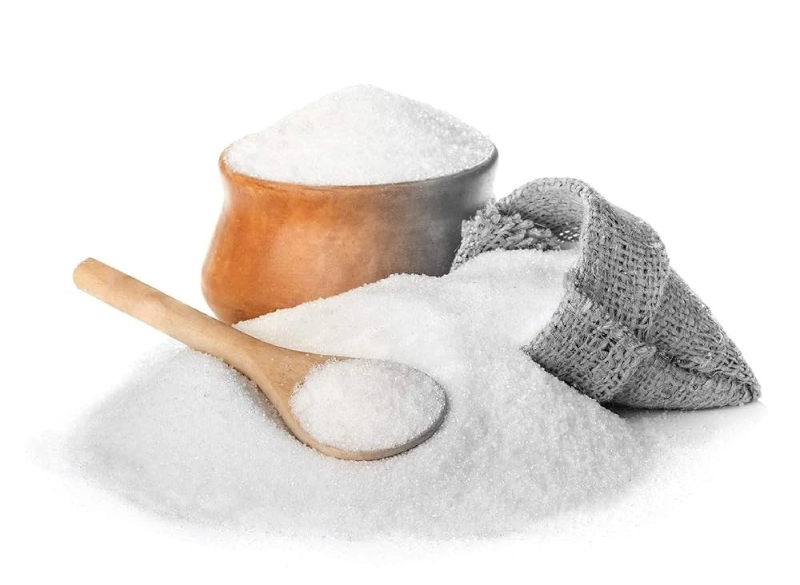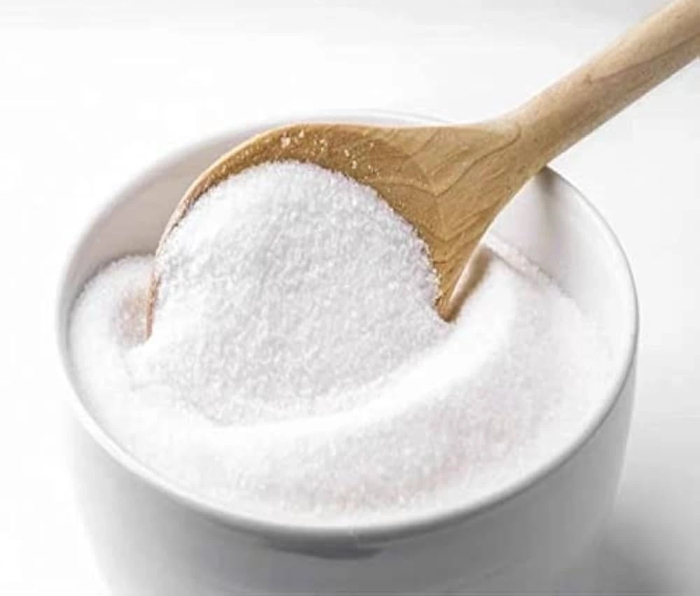Views: 222 Author: Sara Publish Time: 2025-10-22 Origin: Site








Content Menu
● How Does Erythritol Affect the Body?
>> Cardiovascular Risks and Platelet Activity
>> Oxidative Stress and Cellular Aging
● Recommendations and Moderation
● FAQ
>> 2. Is erythritol safe to consume?
>> 3. Does erythritol raise blood sugar levels?
>> 4. Can erythritol cause digestive problems?
>> 5. Are there safer alternatives to erythritol?
Erythritol is a sugar alcohol widely used as a low-calorie sweetener in many sugar-free and "healthier" products such as beverages, snack bars, and chewing gum. It gained popularity as a sugar substitute because it provides sweetness without significantly raising blood sugar or insulin levels. However, recent scientific research has raised important concerns about its effects on cardiovascular and brain vascular health, complicating the narrative of erythritol being an entirely harmless sugar alternative.

Erythritol is a naturally occurring sugar alcohol found in some fruits and fermented foods. It tastes sweet but contains almost zero calories, making it appealing for weight management and diabetic-friendly diets. Commercial production typically involves fermenting glucose derived from plant materials like cornstarch.
Erythritol is absorbed into the bloodstream from the small intestine but is not metabolized for energy. Hence, it does not raise blood sugar or insulin levels, making it a popular choice for people with diabetes or those seeking to reduce caloric intake from sugar.
Recent laboratory and clinical studies highlight concerning vascular effects. When human brain microvascular endothelial cells—cells lining small blood vessels in the brain—were exposed to erythritol at concentrations equivalent to one sweetened beverage serving, researchers observed an increase in oxidative stress and a decrease in nitric oxide production, a molecule vital for blood vessel dilation. These changes contribute to impaired vascular function, narrowing blood vessels, and potentially increasing risks for stroke and heart attack.
Additionally, erythritol exposure raised levels of endothelin-1, a protein that constricts blood vessels, while suppressing t-PA, an enzyme essential for breaking down blood clots. These alterations suggest an increased risk of blood clot formation, a significant factor in cardiovascular events.
Large-scale studies tracking blood erythritol levels found that higher concentrations were linked to increased risks of major adverse cardiovascular events such as heart attacks and strokes. Experimental work demonstrated that erythritol enhances platelet reactivity—the process by which blood cells clump together to form clots—thereby amplifying thrombosis risk. Notably, erythritol remains elevated in the bloodstream for many hours after ingestion, especially concerning for frequent consumers of erythritol-containing products.
Erythritol promotes production of reactive oxygen species (free radicals), leading to oxidative stress that damages cells and inflames tissues. This stress accelerates vascular aging and dysfunction, further exacerbating cardiovascular risk, especially in older adults.
Unlike some sugar alcohols such as sorbitol or maltitol, erythritol is mostly absorbed and rapidly excreted via urine, leading to fewer gastrointestinal side effects like gas or diarrhea at typical doses. However, excessive intake can still cause digestive discomfort in sensitive individuals.
Emerging evidence shows that erythritol consumption may be associated with faster cognitive decline, although these findings remain preliminary and require further research.

- Nearly zero calories, aiding weight management.
- Does not raise blood glucose or insulin levels.
- Tooth-friendly, as it does not contribute to tooth decay.
- Good taste profile, with sweetness about 60-80% of that of sugar.
- Low likelihood of digestive distress compared to other sugar alcohols at moderate intake.
Given erythritol's widespread use, the new findings prompt caution, particularly for people with cardiovascular risk factors such as hypertension, diabetes, or a history of heart disease or stroke. Moderation is key, and consumers should read product labels to monitor erythritol intake, especially with frequent consumption of processed, sugar-free foods and beverages.
Healthcare professionals recommend considering alternative noncaloric sweeteners like stevia or monk fruit extract, which currently show fewer concerns regarding vascular effects.
Erythritol has been embraced as a safe and beneficial sugar substitute due to its low-calorie content and minimal effects on blood sugar and digestion. However, emerging scientific evidence reveals potentially serious impacts on brain and cardiovascular health, including increased oxidative stress, impaired nitric oxide production, and enhanced platelet activity that collectively raise the risk of stroke, heart attack, and vascular aging. While erythritol remains a useful tool for reducing sugar intake, consumers and clinicians should be aware of these risks, especially for those with underlying cardiovascular conditions. Further long-term clinical studies are essential to fully understand erythritol's health implications and to establish safe consumption guidelines.

Erythritol is a sugar alcohol used as a low-calorie sweetener in many sugar-free foods and beverages. It naturally occurs in some fruits and is produced commercially by fermenting glucose.
Erythritol is generally safe for most people in moderate amounts. However, recent studies suggest that high or frequent consumption may negatively affect cardiovascular health, especially in individuals with existing risk factors.
No, erythritol has minimal impact on blood sugar and insulin levels, making it suitable for diabetics and those on low-carb diets.
At typical intake levels, erythritol is less likely to cause digestive issues compared to other sugar alcohols because it is mostly absorbed and excreted unchanged. Excessive intake may still lead to gas or diarrhea.
Yes, natural noncaloric sweeteners such as stevia and monk fruit extract are currently considered safer regarding vascular health, although individual preferences and tolerances vary.
[1](https://www.bassmedicalgroup.com/blog-post/erythritol-health-concerns)
[2](https://www.physiology.org/detail/news/2025/04/25/popular-sugar-substitute-may-harm-brain-and-heart-health)
[3](https://www.sciencedaily.com/releases/2025/07/250718035156.htm)
[4](https://www.colorado.edu/today/2025/07/14/common-sugar-substitute-shown-impair-brain-cells-boost-stroke-risk)
[5](https://www.ahajournals.org/do/10.1161/blog.20250424.402076)
[6](https://newsroom.clevelandclinic.org/2024/08/08/cleveland-clinic-study-adds-to-increasing-evidence-that-sugar-substitute-erythritol-raises-cardiovascular-risk)
[7](https://www.neurology.org/doi/10.1212/WNL.0000000000214023)
[8](https://pubmed.ncbi.nlm.nih.gov/40444390/)
[9](https://www.henryford.com/Blog/2025/01/Artificial-Sweeteners-And-Stroke-Risk)
[10](https://academic.oup.com/cardiovascres/article/121/9/1319/8153562)
